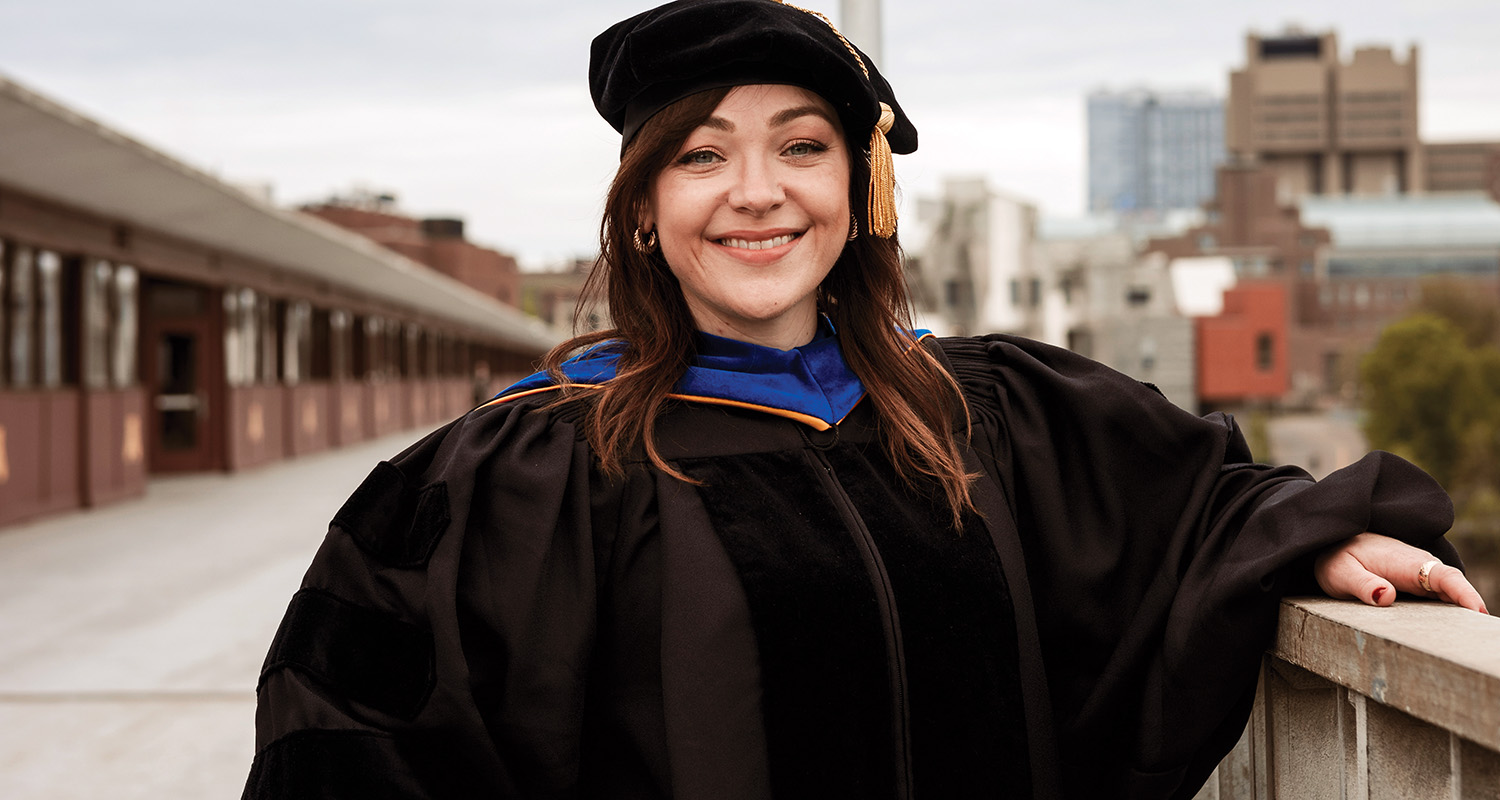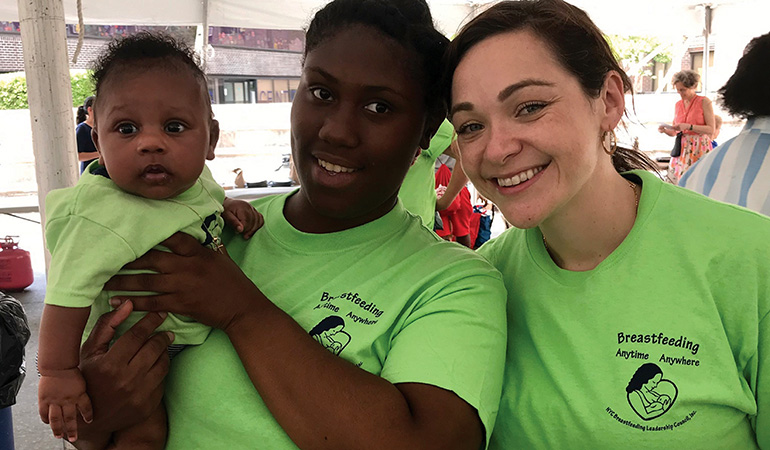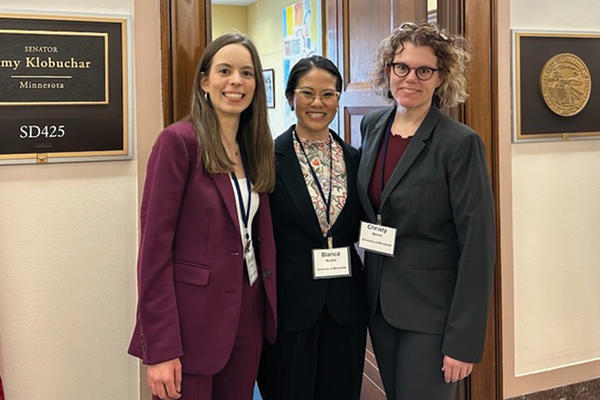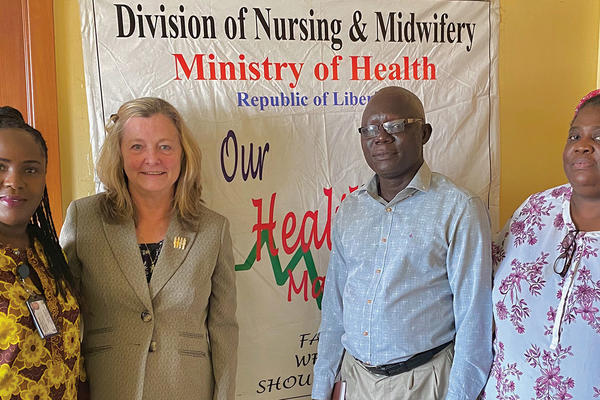Driven to make nursing a sustainable career
With her newly earned PhD, Anna Pirsch hopes to nurture a new generation of nurses
November 13, 2023
Susan Maas

Photo: KOBIFlicks
Working as a public health nurse in New York City during the intersecting crises of COVID-19 and the global uprising following George Floyd’s murder—amid widespread suffering, chaos and limited government resources—could have led Anna Pirsch, PhD ’23, BSN ’12, RN, to switch careers.
Instead, it affirmed her PhD path, inspired her dissertation and deepened her commitment to the field. Now, it helps inform her teaching as a visiting assistant professor in the new Susan S. Morrison School of Nursing at the University of St. Thomas in St. Paul.
The traumas of 2020 amplified for Pirsch “the limits of our role,” she says. “You work with people who are living and working within circumstances that are out of our control ... experiencing health disparities that are caused by social and structural inequities.” Her PhD research project, Critical Consciousness and Whole-Person Health of Public Health Nurses, explores whether and how critical consciousness—reflecting on one’s own biases, assumptions, and position in the world, and how societal systems and structures uphold or exacerbate inequity and injustice—might affect nurses’ wellbeing.
“I was experiencing burnout,” Pirsch says. “It can be morally distressing when you don’t feel like you can act in alignment with your values because of things that are structurally beyond your control.” Pirsch’s research asks whether deep, moral dot-connecting and “sociopolitical awareness” can help build nurses’ resilience or conversely make it harder to do their jobs. “Do we become demoralized if we know the reality of the world?”
Preliminary results suggest nurses are critically reflective and critically motivated to address injustice, but score lower on critical action. Pirsch also found that public health nurses in particular possess many “whole-person” strengths, yet have greater challenges and needs in mental health, sleep, physical activity and nutrition. Now she’s examining correlations between critical consciousness and whole-person health in nurses.
The power of relationships
Pirsch’s expansive worldview was shaped in part during her undergraduate studies at the University of Minnesota, including study abroad experiences—two via the School of Nursing—in Mexico, Peru and Turkey. Her master’s in advanced public health nursing at Hunter College in New York City, along with her seven years of work experiences in New York during turbulent times, shaped it further. Pirsch’s two years working as a nurse home visitor through the NYC Department of Health and Mental Hygiene was particularly formative, she says.
“Our program was a pilot focused on women who were experiencing homelessness,” she says, which meant visiting patients in shelters and temporary housing. Probably the greatest tool she had to offer, Pirsch believes, was relationship. “Sometimes your ‘intervention’ is nothing but the therapeutic relationship. I really learned that that’s key: partnering with patients and families; evaluating how you need to show up,” she explains.

Anna Pirsch, right, during her time as a public health nurse in New York City at an event with the NYC Breastfeeding Leadership Council.
“Sometimes it would be just a little shopping trip; nothing to do with what I thought, in my head, I was supposed to be doing as a nurse. But supporting the person. The power is in that interaction,” she says.
While still living in New York, Pirsch decided to seek her PhD, and reached out to Karen Monsen, PhD, RN, FAAN, whom she calls an “inspiring, supportive mentor” going back to her undergrad years. “She said yes, come back to the U and I’ll work with you before I retire.” Pirsch began the degree remotely while working in the ER at New York Presbyterian hospital during COVID’s explosion.
Nurturing a new generation
To call that period challenging is an understatement. Pirsch saw many peers leave the profession. But ultimately it cemented her path, and her drive to help make nursing a sustainable career. “My hope is for nursing to be a place we can stay, where we can impact and love our communities and be sustained in the work that we do,” she says.
During her PhD program, Pirsch joined the Inclusivity, Diversity, and Equity Committee — surveying the student body and working on educational initiatives. She’s happy to see how the school has evolved over the past decade, even as work remains in making the student body and faculty more reflective of the population.
Today Pirsch is thrilled to be part of creating St. Thomas’s new nursing school from the ground up. Her deep roots in the U of M School of Nursing have helped prepare for this new chapter. “The school was one of the earliest to be grounded in academic nursing and professionalism; that’s really important to me,” Pirsch says. Helping cultivate a healthy, thoughtful and more diverse generation of nurses is a challenge she relishes. “It’s an exciting time to build.”


